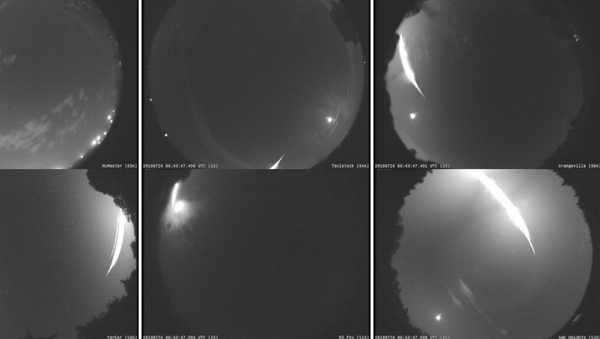On July 24, Western University, located in London, Ontario, captured footage of a fireball phenomenon on a total of 10 “all-sky” cameras belonging to the Southern Ontario Meteor Network.
A fireball is defined by the International Astronomical Union (IAU) as a meteor "brighter than any of the planets,” with an apparent magnitude of −4 or greater.
This particular clip was recorded at 2:44 a.m. local time and released through a collaborative effort by Western’s Physics and Astronomy Department and NASA's Meteoroid Environment Office.
According to NASA’s release, the fireball was seen “at an altitude of 58 miles above the northern shore of Lake Ontario” and clocked in at around 55,000 mph as it traveled to the northeast. The administration predicts the fireball fragmented while some 18 miles above Little Anstruther Lake.
“We suspect meteorites made it to the ground because the fireball ended very low in the atmosphere just to the west of Bancroft and slowed down significantly. This is a good indicator that material survived,” Peter Brown, an astronomy professor and meteor specialist at Western University, said in the school’s press release.
Based off the bright meteor’s relatively low altitude, researchers are hoping they can locate fragments.
"Meteorites are of great interest to researchers as studying them helps us to understand the formation and evolution of the solar system," Brown explained.
Meteorites automatically belong to the owner of the property in which they land, according to Canadian law. That said, Western University is requesting those with information to phone Kim Tait at the Royal Ontario Museum.


